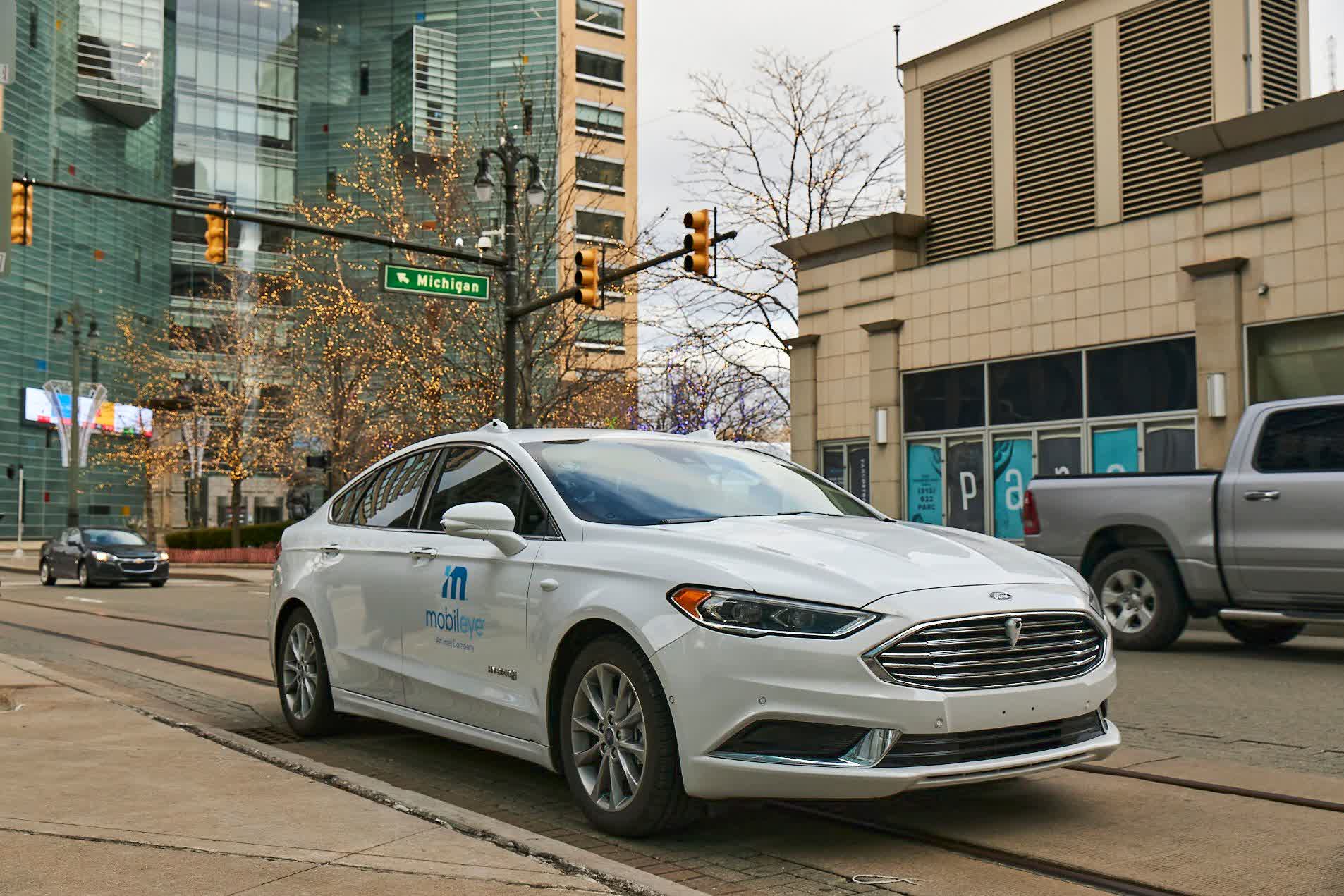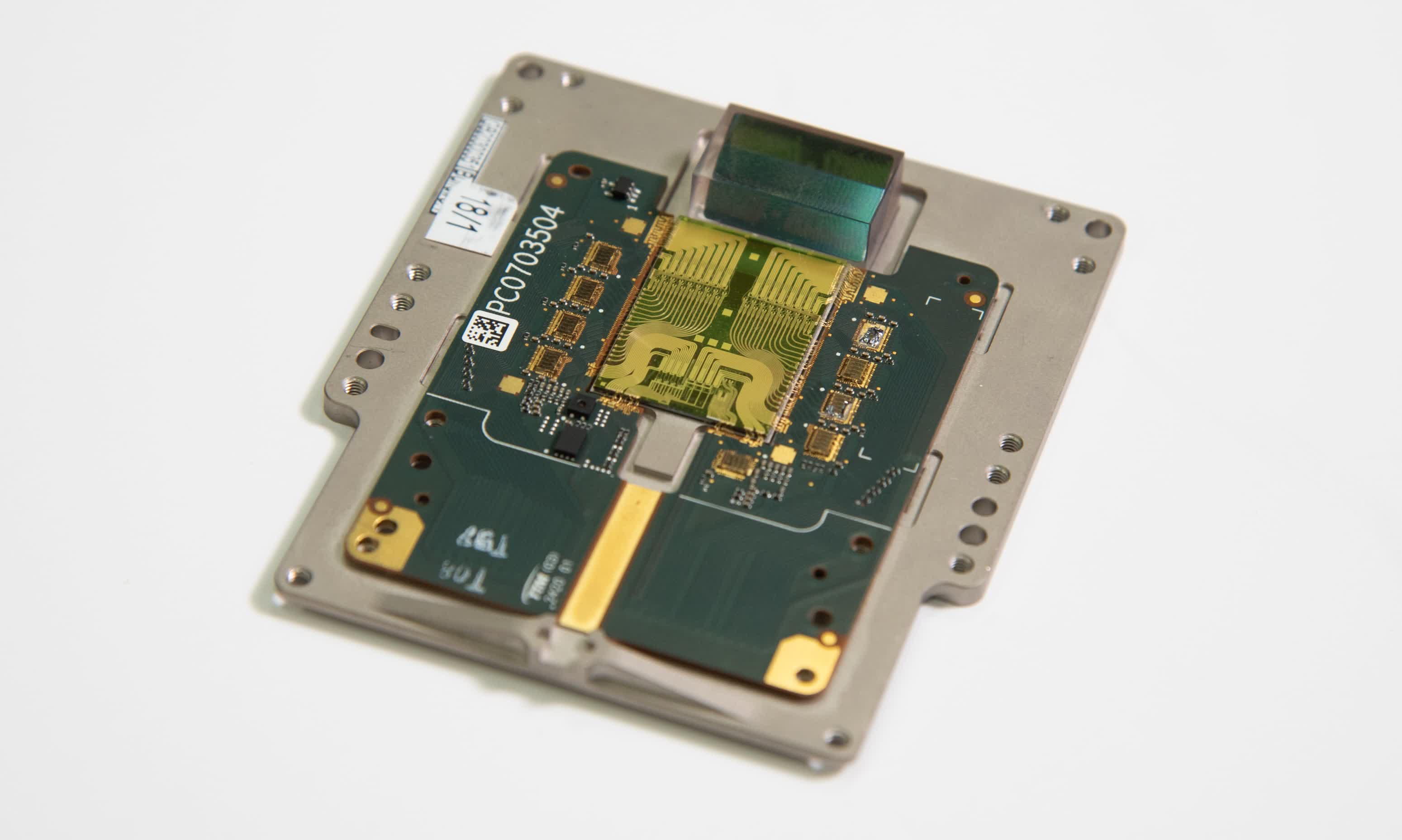Highly anticipated: Tesla has long overtaken the headlines around self-driving vehicles, but Intel’s autonomous vehicle division Mobileye is laying the groundwork to be its biggest competitor. Mobileye’s CEO revealed its upcoming lidar tech at CES 2021, and marked an exciting, differentiating strategy between the industry’s leading giants.
The world of self-driving vehicles is roughly hewn into two factions: companies that believe fully autonomous vehicles will naturally evolve from advanced driver-assistance systems (ADAS), and those that expect the two will exist in concert, fulfilling different niches.
The latter is currently led by Alphabet’s self-driving outfit Waymo, which has a testing ground of self-driving taxis in the suburbs of Phoenix as well as scattered tests within San Francisco. The former however is where companies like Tesla reside, as well as their main, lesser-known competitor in this space, an Intel division called Mobileye.
These two exist in a hypothetical space where they race for dominance over the inevitable, self-driven future of automotive travel. While it is possible that they are scrying the future of this industry correctly, their tactics and investments are quite different.

Israeli tech firm Mobileye was acquired by Intel in 2017 for $15 billion and has become the largest supplier of ADAS systems installed in modern cars. Mobileye had a big CES showcase this year to explain how they believe their strategy for comprehensive self-driving vehicles will not hit the “glass ceiling” that awaits Tesla, according to Mobileye’s CEO, Amnon Shashua.
Creating a system for self-driving vehicles requires a large foundation of data to train a company’s proprietary AI which will allow a vehicle to recognize and react to variation on the road faster than a human is capable of. Shashua and Tesla’s Elon Musk approach this challenge differently.

Tesla’s datasets comprise countless hours of video information recorded by its fleet of cars, which the vehicles selectively send to Tesla engineers when Wi-Fi is readily available. Tesla’s team can then query this information and extract clips which are the most optimized for training its platform. An alternative to this video-only strategy is to use more expensive lidar sensors. Back in 2019 however Musk was quoted saying, “anyone relying on lidar is doomed.”
Mobileye’s Shashua believes that a more practical, reliable system would utilize both. Their ubiquitous ADAS systems do not currently use lidar, but in an interview this week the CEO showed off a new lidar-based system, which would be implemented into their vehicles by 2025. Mobileye used to be a Tesla partner up until 2016, but today it’s working with several automakers including BMW, Ford, Nissan, and Volkswagen.
The Intel subsidiary does not believe they need to use the “brute force” strategy of AI video-training that Tesla implements, but rather the “semantics of the road” can be discerned through more targeted means. Their current systems record video data, which it processes locally to understand the geometry of its environment, then sends those small packets of information back to Mobileye to help construct massive 3D maps. These maps provide detailed geometrical data as well as contextual, behavioral data in local regions of the city or street they were taken.
Mobileye does not expect to combine its lidar and video technology until both are ready for prime time, at which point it aims to provide one comprehensive system for self-driving vehicles. Only time will tell if their strategy to partner with large automotive companies and develop maps of cities around the world will outcompete the brute force of Tesla’s video-based system on its own vehicles.
If lidar proves essential in future, then Tesla might see difficulties ahead. Waymo, too, may find trouble expanding their solution if their technology is too specialized to the regions in which they test. Mobileye, a firm with lesser name recognition than the former two, may have a platform that is comprehensive and global enough to outlast or even surpass its competition.
Source link